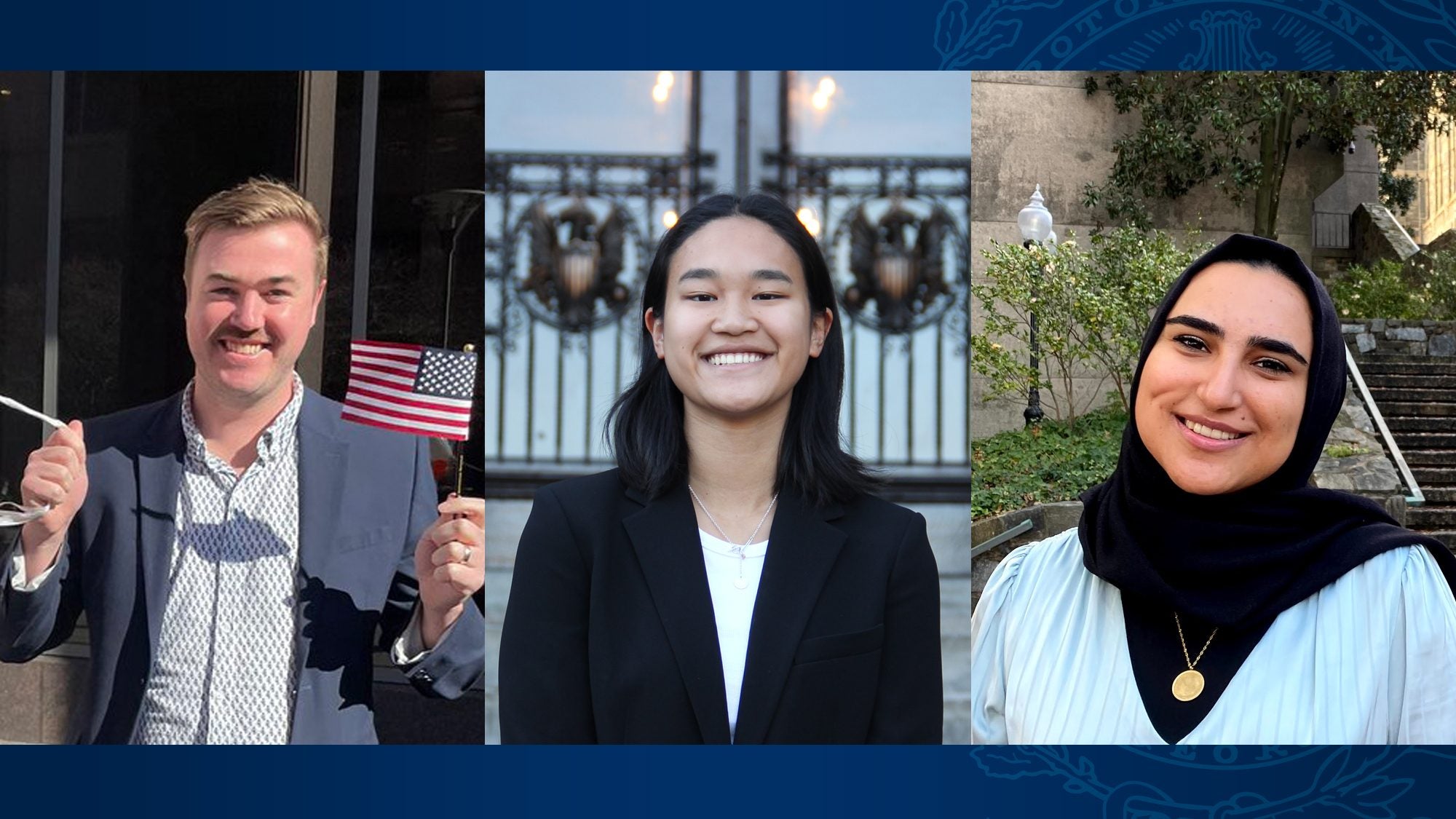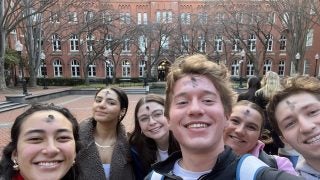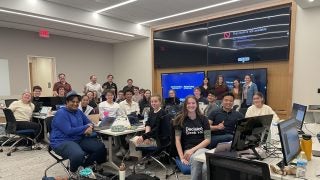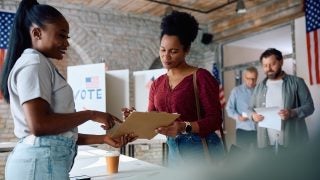In November, millions of Americans will cast their vote for president and other important offices in all levels of government. For some students who were once new to the U.S., it will also be the first time they participate in a presidential election.
Meet a few of the Hoyas who are voting for the first time and learn about what voting means to them, from an Afghan refugee to a New Zealander studying U.S. politics and an expatriate from Hong Kong.
An Afghan Refugee’s First Presidential Election
Voting is critical to Zahra Wakilzada (SFS’23, G’25) as an Afghan-American. It’s a “powerful statement,” she says.
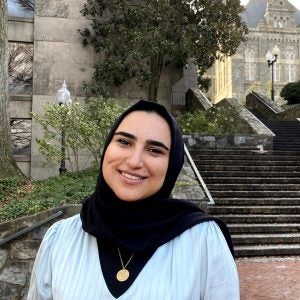
“I came from Afghanistan where at this moment in history, women are denied not only the right to vote – they’re not even allowed to be educated or step outside without a male family member. … My ability to vote means to reclaim my agency in a patriarchal world, where many who share my identities are denied the right to be an active member of their society.”
Wakilzada fled Afghanistan in 2013 and arrived in the U.S. as a 15-year-old refugee in 2015. A first-generation college student, Wakilzada found a home at Georgetown when she attended Hoya Saxa Weekend and realized the Hilltop was where she was meant to be.
As an undergraduate, Wakilzada was involved in various programs and fellowships, including the Georgetown Scholars Program, Community Scholars Program and Pelosi Scholars Initiative. It was during her junior year at Georgetown when she became a naturalized American citizen.
“Becoming an American citizen at 20 has been life-changing. It has come with a lot of opportunities, possibilities and responsibilities — one of which is to be politically active and vote, ” she said.
She is ready to give back to the U.S., the country that welcomed her as a young refugee. As a Rangel Fellow, Wakilzada is now pursuing a graduate degree at the School of Foreign Service before joining the ranks of the Foreign Service after graduation through the fellowship. She said becoming a foreign service officer is a way to give back to the country that embraced her when she was most vulnerable.
But first, she’s excited to cast her ballot in her first presidential election.
“My vote is not only for me,” she said. “It’s to honor all those women who have come before me. It is to remember the ones who fought for my right to vote while actively contributing to the American society and determining the fate of my new country.”
A Ph.D. Student With a Passion for Youth Engagement
Patrick McSweeney’s (G’25) introduction to American politics started when he was 12 years old and bombarded with political ads in the 2004 presidential election. McSweeney’s family moved from New Zealand to the critical battleground state of Ohio during the contest between President George W. Bush and John Kerry.
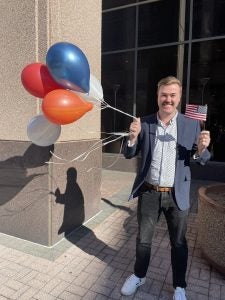
“My exposure to American politics was being thrown into the fire of all these political ads,” McSweeney said. “It opened my eyes to what American politics is, how high the stakes are and just how important getting involved is.”
That early interest has since turned into McSweeney’s career. Today, he studies American politics as a Ph.D. candidate in the Department of Government and Graduate School of Arts & Sciences.
Specifically, he studies youth political engagement and the ideological tensions between younger and older members of the Democratic Party, the causes behind the intraparty generational divide and the potential consequences for the future of the political party and U.S. politics.
While he’s dedicated the last five years to studying young people in American politics, the 32-year-old only naturalized as an American citizen in 2022. In other words, he hasn’t voted in a presidential election.
Next week, that changes when McSweeney will cast a ballot at his local polling station in Alexandria, Virginia. Heading into November, he’s eager to vote for president as well as candidates in all races.
“I’m just as excited to be able to vote for those down-ballot races, voting for the mayor, voting for the city council,” he said. “Those are the races that I feel like I’m going to see an immediate impact over who’s chosen.
The Expat American in China
Stella Liu (SFS’27) was already looking at how to register to vote before she arrived at Georgetown.
Liu was born in Miami but was raised in mainland China and later Hong Kong. After nearly two decades abroad, she didn’t know if she could even vote in the U.S.
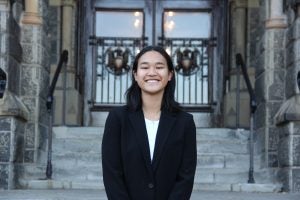
“It means a lot to me that I get to vote because in the past few years living in Hong Kong, I saw democracy in my city just get taken away out of nowhere,” she said. “That just drives me to vote even more because the opportunity to make a change is taken away from me back home.”
At Georgetown, Liu has worked with GU votes to mobilize voters. This fall, she is volunteering at the White House, working in the Office of Presidential Correspondence in the West Wing to categorize emails sent by constituents to President Joe Biden and Vice President Kamala Harris.
“It means a lot because for so long I’ve been observing American politics from far away and from the outside,” she said. “The reason why I want to come here is to get my foot in the door, and this is exactly that. Even though I’m such a small cog in the system, I can still contribute to the American public.”
Liu already filled out her absentee ballot but will drop her ballot at her polling station on election day to get the full voter experience. As a resident of DC, Liu will cast her vote for president and DC’s non-voting congressional delegate. However, she’s also excited for her vote to impact local policies in DC while she studies at Georgetown.
“Any opportunity to vote is important to me, but I think it’s important because it’s issues that are specific to the city itself, and there’s a lot of people who live here in the city,” she said. “Compared to state elections and national elections, you can definitely make a change that is more impactful to my immediate life.”
